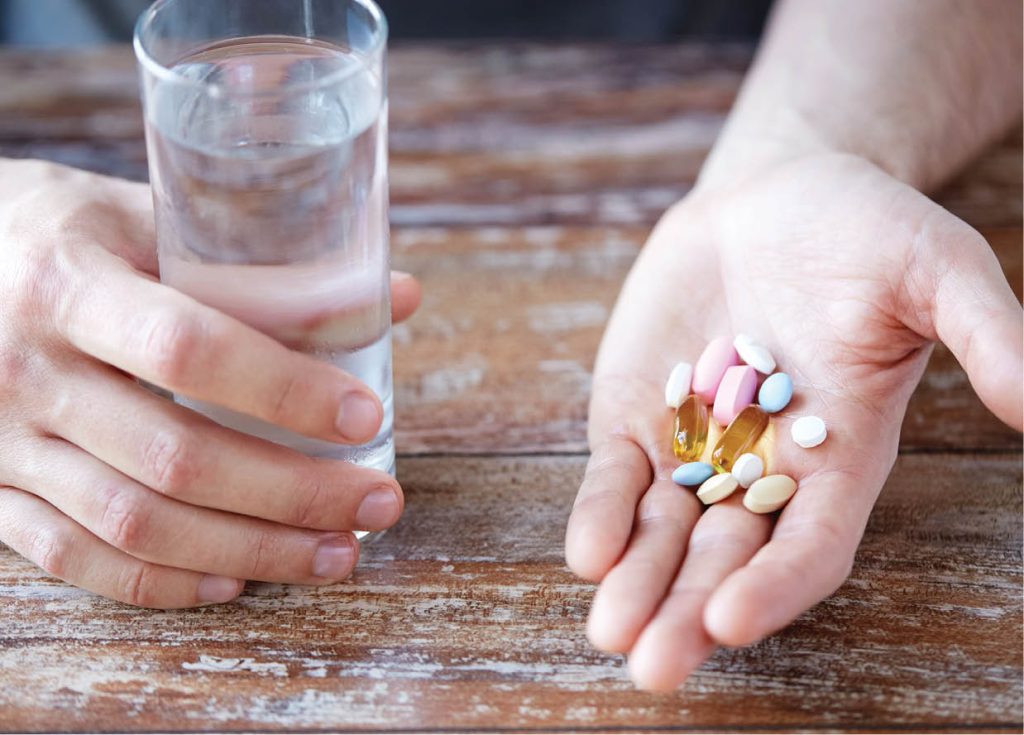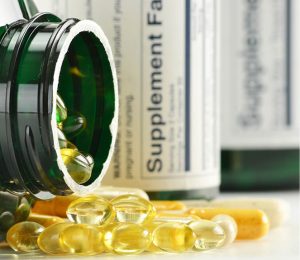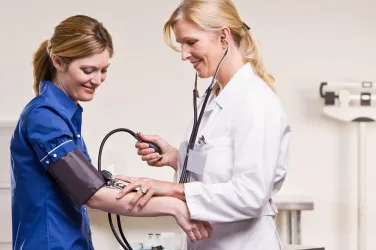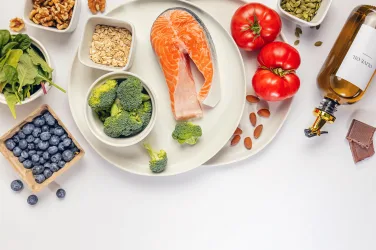 It only takes cruising the vitamin and supplement aisle of your local grocery store to get confused about what your body may actually need in dietary supplements. Contrary to the barrage of messages we receive regarding the need for supplements, vitamins occur naturally in our diets, and most of us—unless suffering from a deficiency—get all the nutrition we need from the foods we eat.
It only takes cruising the vitamin and supplement aisle of your local grocery store to get confused about what your body may actually need in dietary supplements. Contrary to the barrage of messages we receive regarding the need for supplements, vitamins occur naturally in our diets, and most of us—unless suffering from a deficiency—get all the nutrition we need from the foods we eat.
However, at different stages of life and phases of health, there are times when we need supplementation to balance our health. Keep in mind that too much of a good thing can hurt more than help, so be sure to educate yourself before taking supplements. Here are some of the basics.
When Do I Need a Supplement?
Pregnant women are encouraged to take prenatal vitamins to maintain iron and folic acid levels. Folic acid prevents certain birth defects and iron prevents anemia, common in pregnancy, and keeps energy levels high enough for the demands on the body during pregnancy.
If you are over 70, the changes to how your body processes nutrition may warrant the addition of calcium, vitamin D, and B12. If you are at risk for osteoporosis, calcium is vital. Vitamin D deficiencies often affect the elderly because they often don’t get enough natural sunlight. A B12 deficiency is common with the elderly because as the body ages, it can lose its ability to absorb B12.
People who follow a vegan diet are often B12 deficient because of the lack of meat and dairy. Foods fortified with B12, like enriched cereals and soy products, can help. Nutritional yeast can also benefit a vegan diet.
Those on a restricted diet of less than 1,600 calories a day may also be getting less nutrition than they would normally need. Supplements can be helpful in adding nutrients to a restricted diet, but weight loss supplements, in general, don’t add needed nutrition, so be aware of what you buy. The general rule with weight loss supplements? If it seems too good to be true, it probably is.
Following bariatric surgery, a wide range of supplements may be prescribed by your doctor to ensure that your changing body is able to process all the nutrition that it needs. Because of the severe caloric restrictions following bariatric surgery, you will need a multivitamin, a calcium supplement, vitamin D, and B12.
What about Fish Oil?
 Omega-3 fatty acids are found in mackerel, tuna, salmon, and herring—all fish that can be added to our diets. However, if you don’t like fish or have an allergy, fish oil supplements may be right for you. Like vitamins, the body does not produce omega-3 fatty acids and must get them from other sources. Omega-3 can help with a wide range of issues, ranging from helping lower triglycerides for heart health and assisting with kidney function. It’s considered likely safe for all people when taken in low doses.
Omega-3 fatty acids are found in mackerel, tuna, salmon, and herring—all fish that can be added to our diets. However, if you don’t like fish or have an allergy, fish oil supplements may be right for you. Like vitamins, the body does not produce omega-3 fatty acids and must get them from other sources. Omega-3 can help with a wide range of issues, ranging from helping lower triglycerides for heart health and assisting with kidney function. It’s considered likely safe for all people when taken in low doses.
Where do I start?
If you are concerned that you are either in a high-risk category or feel that you are not getting proper nutrition from your diet, contact your doctor for a thorough check up. In many cases with vitamins and other supplements, less can often be more. If you are relatively healthy, it’s less likely that you need a multivitamin or any type of supplement. Knowing what you eat each day is the best way to focus on your nutrition and your overall health.
Get What You Need from Your Diet
Top Ten Vitamins from A to Z
1. Beta-Carotene/Vitamin A
- Carrots, sweet potatoes, and cantaloupe
- Good for healthy teeth and skin
2. B Vitamins, including B12
- Whole grains, potatoes, beans, bananas, yeast, molasses
- Good for immunity, energy, and iron absorption
3. Vitamin C
- Oranges, of course! Also guava, kiwi, strawberries, and Brussels sprouts
- Good for anti-oxidant function, skin elasticity, and iron absorption
4. Vitamin D
- Found in sunshine, eggs, and fish
- Good for healthy bones
5. Vitamin E
- Found in nuts, sunflower seeds, and tomatoes
- Good for blood circulation and to prevent free radicals
6. Vitamin K
- Leafy greens (like kale, spinach, and Brussels sprouts)
- Good for blood coagulation
7. Folic Acid
- Dark leafy greens, citrus fruits, beans
- Cell renewal and for preventing birth defects in pregnancy
8. Calcium
- Dairy products, tofu, and molasses
- Good for healthy teeth and bones
9. Iron
- Clams, oysters, beans, and spinach
- Good for building muscle and maintaining healthy blood
10. Zinc
- Seafood, spinach, beans, and dark chocolate
- Good for immunity, fertility, and growth









